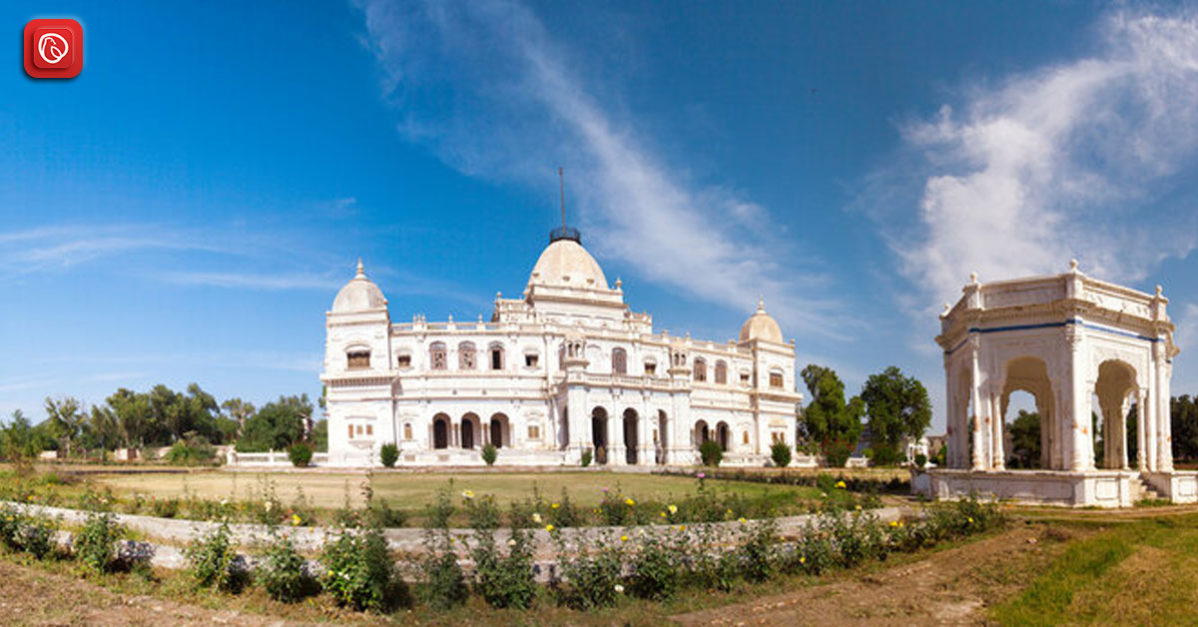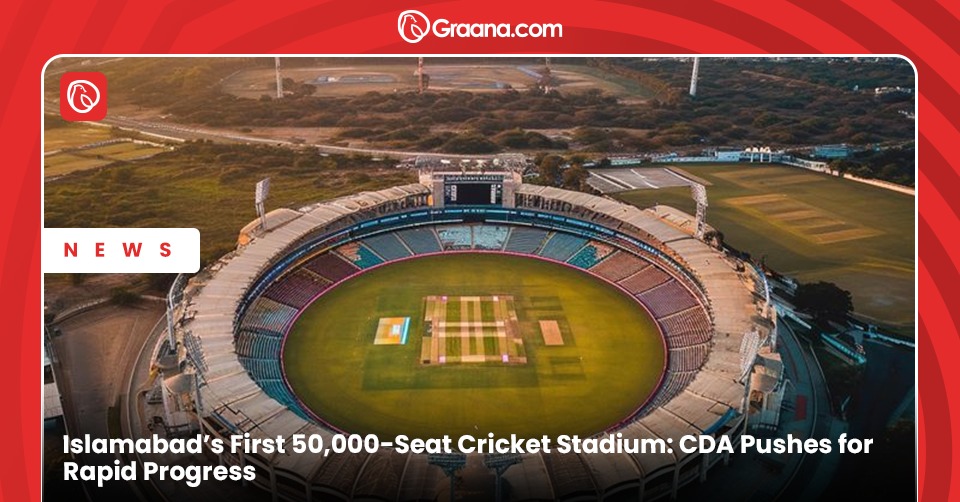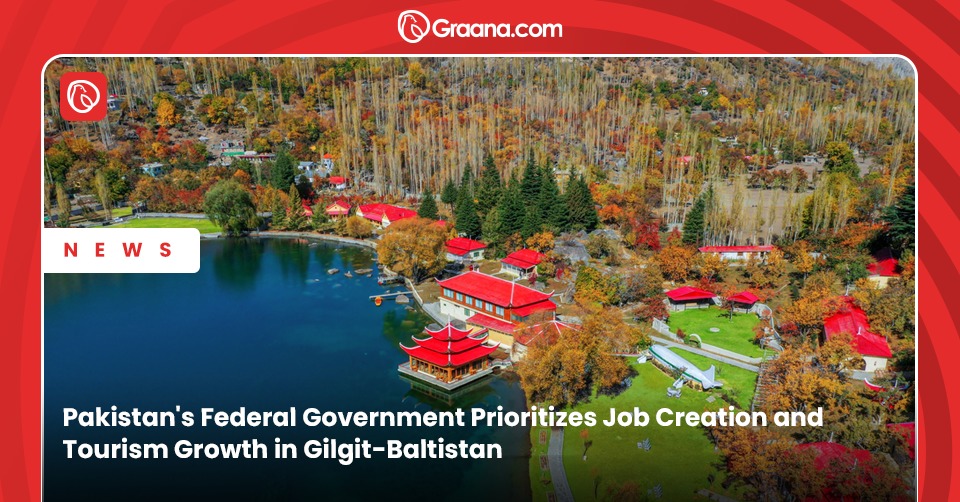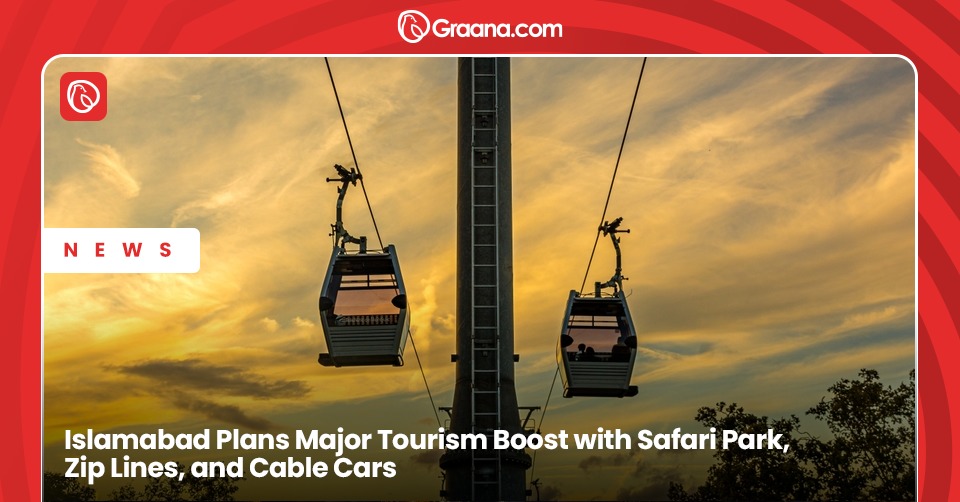Bahawalpur, known as the city of Nawabs and Palaces, located in the southern part of Punjab, Pakistan. It is the central headquarters of South Punjab and is among the cleanest cities in the region. The city stands as a testament to a rich history, cultural diversity, and modern dynamism. As one of the ten largest cities in Pakistan and the sixth most populous in Punjab, Bahawalpur is a city that seamlessly blends its glorious past with its promising future.
This blog by Graana.com delves into the multifaceted charm of Bahawalpur, exploring its history, culture, architecture, economy, and natural beauty.
Historical Significance
Bahawalpur’s history is deeply intertwined with the Nawabs of Bahawalpur, who played a pivotal role in shaping the city’s identity. The city was founded in 1748 by Nawab Bahawal Khan I, and it became the capital of the princely state of Bahawalpur. The Nawabs were known for their patronage of arts and architecture, leaving behind a legacy of grand palaces, forts, and mosques that continue to be the city’s pride.
One of the most significant historical landmarks is the Derawar Fort, a colossal structure standing in the Cholistan Desert. Originally built by the Bhati Rajput rulers and later captured and rebuilt by the Nawabs of Bahawalpur, this fort is an architectural marvel with its 40 bastions and intricate designs.
Another notable site is the Noor Mahal, an Italian-style palace built in 1872. Often referred to as the ‘Taj Mahal of Bahawalpur,’ this palace showcases the grandeur and opulence of the Nawabs’ era.
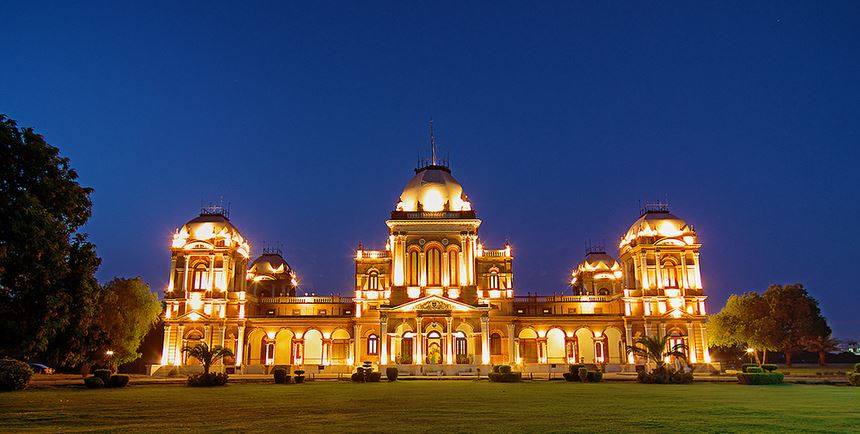
Cultural Heritage
Bahawalpur is a melting pot of cultures, traditions, and languages. The city celebrates a variety of festivals with great fervour, including Eid, Basant, and the annual Cholistan Jeep Rally, which attracts tourists from across the country. The local handicrafts, such as embroidered textiles, pottery, and jewellery, reflect the city’s rich cultural heritage.
The people of Bahawalpur are known for their hospitality and warmth. Punjabi and Saraiki are the predominant languages spoken here, with Urdu being widely understood. The cuisine of Bahawalpur is a delightful experience for food enthusiasts, featuring traditional dishes such as Siri Paye, Halwa Puri, and Saag. The local sweets, particularly Sohan Halwa, are a must-try for anyone visiting the city.
Architectural Marvels
The architectural landscape of Bahawalpur is adorned with a mix of historical and modern structures. The Sadiq Garh Palace, built by Nawab Sadiq Muhammad Khan IV, is a stunning example of royal architecture, with its sprawling gardens and intricate interiors. The Gulzar Mahal and Darbar Mahal are other palatial buildings that showcase the grandeur of the Nawab era.
The city’s religious architecture is equally impressive. The Abbasi Mosque, also known as the Royal Mosque, is an exquisite piece of Mughal architecture with its beautiful domes and minarets. The Jama Masjid Al Sadiq is another prominent mosque, known for its striking white façade and serene ambiance.
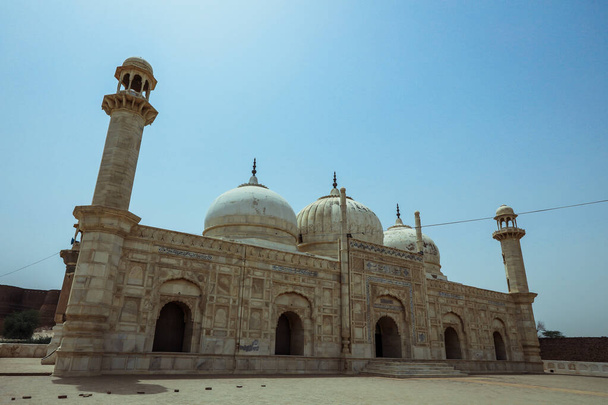
Economic Landscape
Bahawalpur’s economy is primarily agrarian, with agriculture being the backbone of the region. The fertile lands of the Sutlej River support the cultivation of crops such as wheat, cotton, sugarcane, and rice. The city is also known for its fruit production, particularly mangoes and citrus fruits.
In recent years, Bahawalpur has seen significant industrial growth, with industries such as textiles, pharmaceuticals, and food processing playing a crucial role in the local economy. The Bahawalpur Industrial Estate is a major hub for manufacturing and trade, attracting investments and providing employment opportunities to the local population.
The city is also a key player in Pakistan’s renewable energy sector. The Quaid-e-Azam Solar Park, located near Bahawalpur, is one of the largest solar power projects in the country, contributing significantly to the national grid and promoting sustainable energy practices.
Bahawalpur Weather
Bahawalpur, located in the southern part of Punjab province, Pakistan, experiences a distinctive climate characterised by extreme temperatures and significant variations between seasons. Understanding Bahawalpur’s weather is essential for both residents and visitors, as it influences daily life, agricultural practices, and tourism activities. This guide delves into the city’s climatic conditions, seasonal patterns, and tips for coping with its weather extremes.
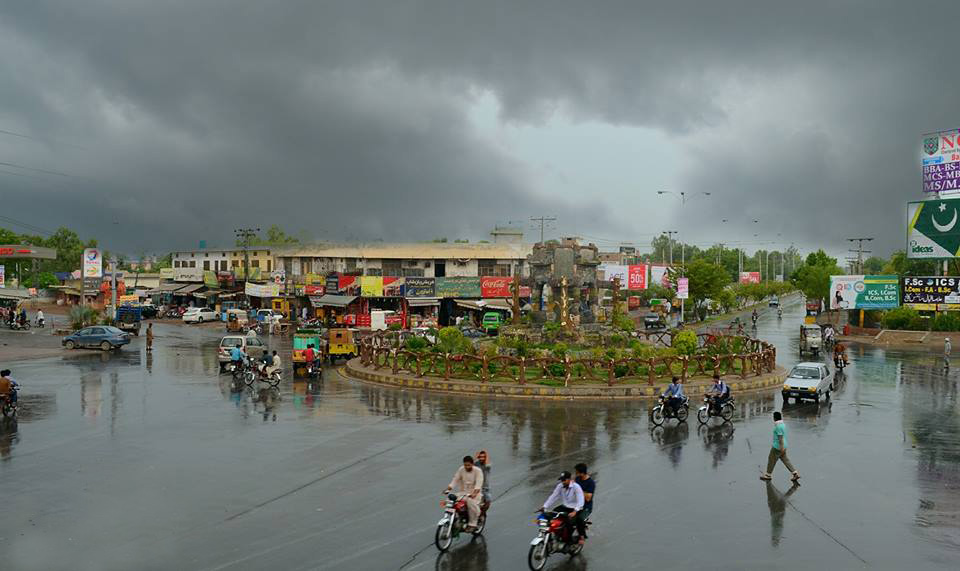
Summer
Summer in Bahawalpur is intense, with temperatures often soaring above 40°C (104°F). The hottest months are June and July, when daytime temperatures can reach as high as 50°C (122°F). The nights offer little respite, with temperatures remaining high, usually above 30°C (86°F).
The heat can be oppressive, and dehydration is a significant risk during this period. It is crucial to stay hydrated, wear lightweight and breathable clothing, and avoid outdoor activities during peak heat hours. The use of air conditioning and cooling systems becomes essential for comfort and health.
Monsoon
Although Bahawalpur does not receive significant rainfall, the monsoon season brings occasional showers that provide a temporary relief from the intense heat. The city receives an average annual rainfall of around 125 mm (4.9 inches), with the bulk of it falling during these months.
The monsoon rains, though sporadic, can lead to brief periods of increased humidity. These showers are often short-lived and do not significantly impact the overall arid conditions. However, they are welcomed by the residents and the agricultural sector, as they help in replenishing water supplies and cooling down the temperature temporarily.
Autumn
Autumn in Bahawalpur is characterised by a gradual decrease in temperature. The scorching summer heat begins to wane, and the weather becomes more bearable. Daytime temperatures range between 30°C (86°F) and 35°C (95°F), while nights become cooler, dropping to around 20°C (68°F).
This season is considered one of the best times to visit Bahawalpur, as the weather is relatively mild and pleasant. The reduced heat and lower humidity levels make it ideal for outdoor activities, sightseeing, and exploring the city’s cultural and historical landmarks.
Winter
Winter in Bahawalpur is short and mild, with temperatures ranging between 10°C (50°F) and 25°C (77°F) during the day. Night-time temperatures can drop significantly, sometimes reaching as low as 5°C (41°F), especially in January, the coldest month.
Places to Visit
Bahawalpur, a city steeped in history and culture, offers a myriad of attractions that captivate tourists and locals alike. From grand palaces to serene parks, Bahawalpur presents a blend of architectural marvels, natural beauty, and cultural heritage. Here’s a guide to some of the must-visit places in Bahawalpur.
Noor Mahal
Often referred to as the ‘Taj Mahal of Bahawalpur,’ Noor Mahal is a stunning Italian-style palace built in 1872. This architectural masterpiece was constructed during the reign of Nawab Sadiq Muhammad Khan IV. The palace boasts exquisite interiors, grand halls, and beautifully landscaped gardens. Now managed by the Pakistan Army, Noor Mahal is open to the public and offers guided tours that provide insight into the history and lifestyle of the Nawabs.
Derawar Fort
Located about 100 kilometres from Bahawalpur in the Cholistan Desert, Derawar Fort is a formidable structure with 40 bastions that can be seen from miles away. The fort was originally built by the Bhati Rajput rulers and later taken over by the Nawabs of Bahawalpur.
Its massive walls, rising up to 30 metres high, and the intricate brickwork make it a significant historical site. The fort also houses the royal necropolis of the Abbasi family, adding to its historical importance.
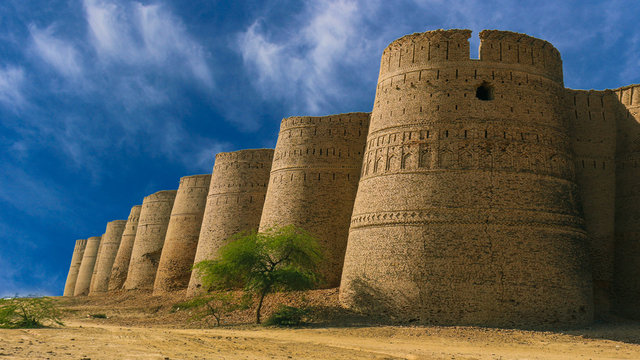
Lal Suhanra National Park
Spanning over 153,000 acres, Lal Suhanra National Park is one of the largest national parks in South Asia. It features diverse ecosystems, including desert, forest, and wetland areas. The park is home to a variety of wildlife, such as the Indian gazelle, wild boar, and migratory birds.
It also includes the Patisar Lake, where visitors can enjoy boating and bird watching. The park is a perfect destination for nature lovers and offers opportunities for camping and picnicking.
Sadiq Garh Palace
Sadiq Garh Palace, built by Nawab Sadiq Muhammad Khan IV in 1882, is another testament to the grandeur of the Nawabs. The palace is an architectural marvel with its majestic structure, extensive gardens, and opulent interiors.
Though it is currently not open to the public due to ongoing restoration efforts, its impressive façade can be admired from outside. The palace reflects the wealth and artistic sensibilities of the royal family.
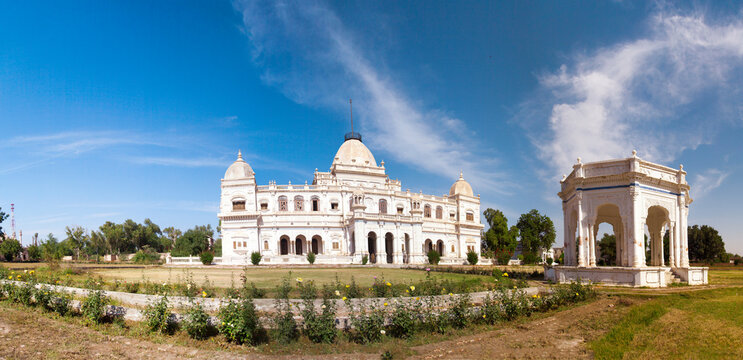
Abbasi Mosque
The Abbasi Mosque, also known as the Royal Mosque, is a fine example of Mughal architecture. Constructed by Nawab Bahawal Khan in 1849, the mosque features white marble, intricate carvings, and a spacious courtyard. It is a serene place of worship and a testament to the religious devotion and architectural prowess of the Nawabs.
Bahawalpur Museum
The Bahawalpur Museum is a treasure trove of historical and cultural artefacts. It houses an extensive collection of archaeological finds, coins, medals, manuscripts, paintings, and handicrafts. The museum’s exhibits on the history of the Bahawalpur state provide a fascinating insight into the region’s rich heritage.
Gulzar Mahal
Gulzar Mahal, part of the Bahawal Garh Palace Complex, was completed in 1905. Featuring European-style architecture with grand halls and beautiful gardens, it served as a residence for the royal family. Though not open to the general public, its exterior can be admired from outside, offering a glimpse into the luxurious lifestyle of the Nawabs.
Central Library
The Bahawalpur Central Library, established in 1924, is one of the oldest and largest libraries in Pakistan. Known for its vast collection of books, manuscripts, and periodicals, the library is an architectural gem with a tranquil setting. It serves as an important centre for education and research in the region.
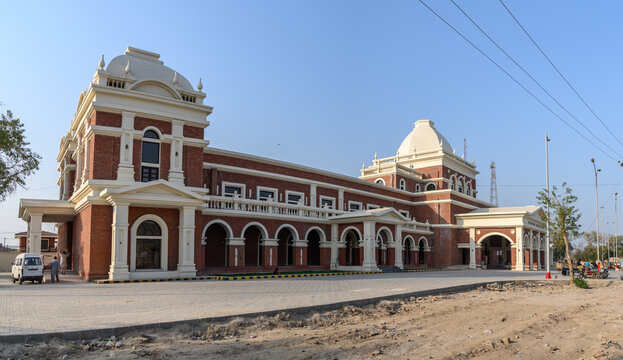
Darbar Mahal
Built in 1905, Darbar Mahal combines Islamic and subcontinental architectural styles, creating a unique and stunning structure. Surrounded by lush gardens, Darbar Mahal was used for state functions and royal ceremonies. Though it is under the control of the Pakistan Army and not open to the public, its majestic exterior can be admired from outside.
Dring Stadium
Dring Stadium, also known as Bahawal Stadium, is a multi-purpose venue primarily used for cricket. With a seating capacity of over 15,000, it is one of the oldest cricket grounds in Pakistan. The stadium hosts local and national sports events, making it a hub for sports activities in the region.
Cholistan Desert
The Cholistan Desert, extending over 26,300 square kilometres, is an integral part of Bahawalpur’s landscape. Known for its sand dunes and unique flora and fauna, the desert is famous for the annual Cholistan Jeep Rally, a major motorsport event. It offers a chance to experience the rugged beauty and traditional lifestyle of the desert dwellers.
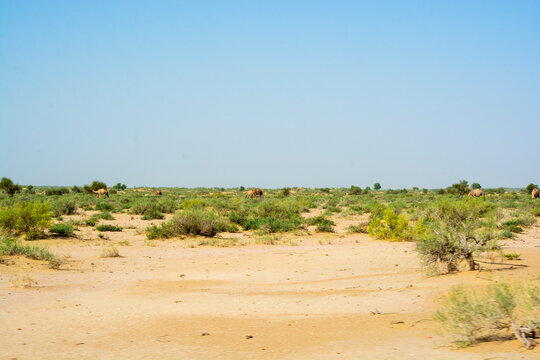
Fateh Jang Tomb
The Fateh Jang Tomb, located in the old city area, is a historical monument dedicated to Fateh Jang, a prominent noble of the Mughal era. The tomb’s Mughal architectural style, with intricate designs and serene surroundings, makes it a place of historical significance and a peaceful retreat within the bustling city.
Educational Institutes in Bahawalpur
Bahawalpur, located in southern Punjab, Pakistan, boasts a diverse array of educational institutions catering to students across different levels of learning. Here are some notable educational institutes in Bahawalpur:
Islamia University Bahawalpur (IUB)
Established in 1975, Islamia University Bahawalpur is a leading public sector university offering undergraduate, postgraduate, and doctoral programmes in disciplines such as humanities, social sciences, natural sciences, engineering, and business administration. It is recognized for its research contributions and commitment to academic excellence.
Quaid-e-Azam Medical College
QAMC, affiliated with Bahawalpur Victoria Hospital, is a prestigious institution for medical education. It offers MBBS and postgraduate programmes in various medical disciplines, producing skilled healthcare professionals for the region and beyond.
Sadiq Public School
Founded in 1953, Sadiq Public School is renowned for its academic rigour and holistic education approach. It provides schooling from primary to secondary levels, focusing on character building, leadership development, and extracurricular activities.
Bahawalpur College of Arts and Science
BCAS offers intermediate and undergraduate programmes in arts, sciences, and commerce. It is known for its quality education and supportive learning environment.
The Educators School
A part of the Beaconhouse School System, The Educators School in Bahawalpur provides comprehensive education from early years to matriculation, emphasising both academic excellence and personal growth.
Hospitals in Bahawalpur
Bahawalpur, a city in southern Punjab, Pakistan, is equipped with several hospitals and medical facilities to cater to the healthcare needs of its residents. Here are some notable hospitals in Bahawalpur:
Bahawal Victoria Hospital
Bahawal Victoria Hospital is one of the largest and oldest hospitals in Bahawalpur. It provides a wide range of medical services including emergency care, surgery, outpatient clinics, and specialised treatments across various medical disciplines.
Civil Hospital Bahawalpur
Civil Hospital Bahawalpur is another key healthcare facility offering medical services to the community. It provides healthcare services ranging from general medical care to specialised treatments and surgeries.
Zarnish Maternity Hospital
Zarnish Maternity Hospital is dedicated to maternal and child health services. It offers prenatal care, delivery services, postnatal care, and paediatric services to ensure the health and well-being of mothers and infants.
Razia Sultana Hospital
Razia Sultana Hospital is a private hospital in Bahawalpur known for its medical expertise and comprehensive healthcare services, catering to both general and specialised medical needs.
Combined Military Hospital (CMH) Bahawalpur
CMH Bahawalpur is a military hospital that provides medical services to military personnel, their families, and civilians. It offers modern medical facilities, specialised treatments, and emergency care.
Demographics
| Total Population | 4,284,964 |
| Literacy Rate | 55% |
| Ethnic Group | Saraiki, Balouchi, Punjabi |
| Religion | Islam 98%, Hindu, Sikh, Christian 2% |
| Hospitals | Bahawal Victoria Hospital and many more |
| Languages | Saraiki, Punjabi, Hindko |
Culinary Delights
Bahawalpur, a city steeped in history and culture, offers a vibrant culinary scene waiting to be explored. From robust meat dishes to comforting vegetarian options, Bahawalpuri cuisine is a delightful mix of flavours and influences. Here’s a glimpse into what awaits your taste buds:
Signature Specialties
Sajji: The undisputed king of Bahawalpuri cuisine, Sajji is a slow-cooked whole lamb or chicken marinated in a blend of spices. Cooked over an open flame or in a tandoor, it delivers a juicy, incredibly flavorful experience.
Bhindi Gosht: This dish features tender okra (bhindi) cooked in a rich gravy with meat (gosht). Aromatic spices and a touch of tanginess make it a delicious and comforting option.
Vegetarian Delights
Cholay: A staple across Pakistan, Cholay is chickpeas cooked in a flavorful gravy. Variations include a simple version with onions and tomatoes or a richer one with yoghurt and spices. Often served with rice or naan.
Daal Baati Churma: A classic comfort food trio featuring lentils (daal), a baked wheat ball (baati), and a sweet, fried flatbread (churma). Perfect for those seeking a hearty and satisfying vegetarian meal.
Local Staples
Raita: A cooling yoghurt-based condiment with chopped vegetables, often served alongside spicy dishes to balance the heat.
Lassi: A refreshing yoghurt drink, sometimes flavoured with mango or other fruits. A perfect way to end a meal or quench your thirst on a hot day.
Beyond the Plate
Street Food: Explore the bustling food streets for a taste of local life. Sample samosas, fried delights like pakoras, and sweet treats like jalebis.
Desserts: Don’t miss the chance to indulge in local sweets like halwa, a dense, fudge-like dessert made with milk, sugar, and nuts, or gulab jamun, deep-fried dough balls soaked in a sweet syrup.
Connectivity To Bahawalpur
Bahawalpur boasts two key transportation hubs connecting it to the rest of Pakistan: Bahawalpur International Airport (IATA: BHV) and Bahawalpur Railway Station.
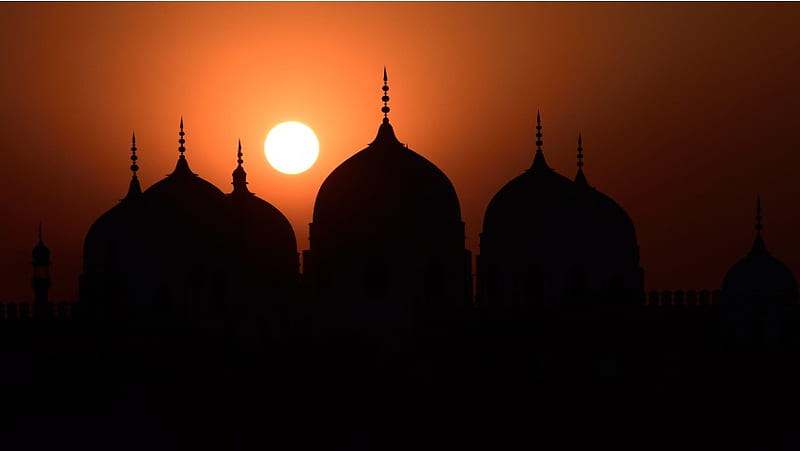
Bahawalpur International Airport
Location: Situated just a short distance (around 3.7 km) from the city centre, the Bahwalpur airport offers convenient access to Bahawalpur.
Connectivity: Primarily catering to domestic flights, the airport connects Bahawalpur to major cities like Lahore, Karachi, and Islamabad. While international flights were once planned, the current focus is on domestic travel.
Facilities: Information on specific facilities is limited, but the airport likely offers basic amenities like baggage claim, security checks, and a waiting area.
Bahawalpur Railway Station
Location: Nestled in the heart of the city, the railway station is easily accessible and within walking distance of many hotels and attractions.
Connectivity: Bahawalpur is well-connected to major Pakistani cities through its railway network.
Passengers can choose from various train options depending on their budget and travel time preferences.
Experience: The railway station itself might hold historical charm, potentially reflecting the architectural heritage of the region. Passengers might encounter a bustling atmosphere with vendors selling snacks and local wares.
Summary
Bahawalpur, a historic gem in Pakistan, enthrals visitors with its rich culture, architectural marvels, and delectable cuisine.
Imagine majestic Bahawalpur Fort, a UNESCO World Heritage Site, whispering tales of a glorious past. Explore the city’s vibrant bazaars, a treasure trove of handicrafts and textiles. Immerse yourself in the local way of life over steaming cups of chai, a refreshing beverage perfect for Pakistan’s warm climate.
Beyond the city, explore the Derawar Fort, an ancient desert marvel, or embark on a wildlife safari in the Bahawalpur Zoological Garden. Foodies will find themselves spoilt for choice with Bahawalpuri specialties like Sajji, a slow-cooked meat dish bursting with flavour, and Cholay, a comforting chickpea curry.
Whether you seek historical immersion, cultural experiences, or culinary delights, Bahawalpur offers an unforgettable adventure. Come explore this captivating city and discover its hidden treasures.
Frequently Asked Questions
Related FAQs
Where is Bahawalpur located?
Bahawalpur is a city located in the Punjab province of Pakistan, near the eastern bank of the Sutlej River.
What is the history of Bahawalpur?
Bahawalpur was historically a princely state in British India, founded in the late 18th century. It joined Pakistan in 1947.
What are the popular tourist attractions in Bahawalpur?
Tourists often visit the Noor Mahal, a beautiful palace known for its Italian-style architecture. Derawar Fort and the Bahawalpur Museum are also notable attractions.
What is the climate like in Bahawalpur?
Bahawalpur experiences a hot desert climate, with extremely hot summers and mild winters. Temperatures can exceed 40°C (104°F) during the summer months.
What is the economy of Bahawalpur based on?
The economy of Bahawalpur primarily relies on agriculture, with crops such as cotton, wheat, and sugarcane being important. Livestock farming is also significant in the region.
For more information, visit the Graana blog.
